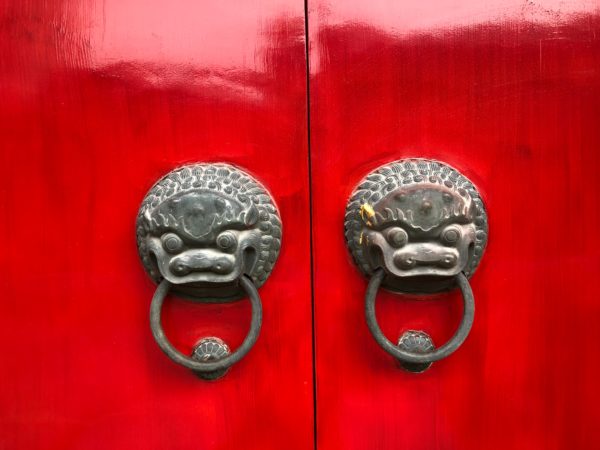
Expanding Your Business to China: What You Need To Know

China has grown to become the most attractive international market for most American and European investors, mainly because the economy offers businesses huge opportunities to expand. The Asian economic powerhouse has a population of almost 1.4 billion people and is the world’s second-largest economy after the USA.
However, as with most emerging economies in the Far East, expanding to China poses its own set of challenges. You need a great product and competitive prices to succeed in China, of course, but there are many other considerations that you have to make that you do not give much thought in the west. Many western multinationals have tried to localize and launch businesses in China but ended up failing because they wanted to operate in China in the same manner they operate in the west.
If you don’t want to fail, here are 11 things you need to know when expanding your business to China:
1. The numbers are in your favor
According to the World Population Clock, the global population as of March 2020 was 7.8 billion people. About 18% of this population (one person out of every five people in the world) lives in China. That is a huge and dynamic market for all kinds of businesses. The country’s workforce is in excess of 776 million, out of which almost 200 million workers are highly skilled. You can bet on finding qualified locals to drive your business agenda. Here are other numbers that will confirm to you how lucrative the Chinese market is:
· China’s share of GDP vis-à-vis the global output was about 18.7% in 2018. And because the country has experienced a steady, consistent growth over the last two years, it is safe to predict that the figure has since shifted in favor of China.
· International trade constitutes almost half of China’s GDP.
· The middle class in China has approximately 700 million people in 2020. What’s more, the average annual salary for Chinese workers is about 12,000 USD. That shows how high the country’s shopping power is relative to other economies in the world.
2. Understand and embrace cultural differences
Work-life separation isn’t a thing in China; people in business interact at a more personal level than in the west. Chinese employees, for example, want to spend quality time with you in order to know you as a person and to tell you what is going on in their private lives. Note that most employees in China are young graduates, especially in logistics and supply chains, so they will also require unique talent management. It is always advisable to work with China PEO when managing young Chinese talents.
Carriers, customers, investors, and vendors also want to have a personal touch with you and your business before they sign up to doing business with you. This cultural difference can be hard to understand, but you must respect it lest you be perceived as overly aggressive and unwelcoming, and that can hurt your business.
3. Never underestimate the power of local networking
Businesses all over the world need networking for both B2C and B2B visibility. The professional relationships you create with like-minded businesses can be instrumental to your success in reaching out to more potential customers. But networking is more than that in China. You will need local networks and backing of locally-recognized companies in order to launch a successful venture in the country. These local companies and business people will help you identify potential competitors, know a few local marketing tricks, and basically help you formulate your business plan. Of course, these are things you can learn by conducting your independent market study or by observing shopping behaviors on online platforms, but then everyone is doing exactly that. You need to network with non-competing brands in order to get a unique, deeper perspective of the Chinese market and stand out from the crowd.
4. China is vast, so you need to prepare for “Many Chinas”
A population exceeding 1 billion is too huge to have a homogenous culture. You can bet that shopping trends and consumer preferences in China vary from one province to the other. Basically, one province in China is like a whole country in Western Europe. That is why you must avoid targeting the entire country at first but instead narrow your focus to a specific region or one major Chinese city.
For a smooth entry to China, choose a region that is well developed in terms of transport and communication infrastructure. Also note that setup costs- labor, taxes, shipping duties, and employment regulations, among other costs, vary from one region to the other. You need to consult corporate lawyer professionals, financial consultants, trade groups, and accountants for advice before opening shop in China.
5. Work with local translators
Everyone in China- from Chinese officers, employees, to customers- loves to converse in Mandarin rather than English. However, although Mandarin is the commonest language in China, there are many regional dialects and cultural differences in the country. You cannot capture them all unless you work with a local professional translation company.
Note that some business requirements, particularly technical documents and certificates, are subject to local interpretation by law. You don’t have much of a choice here.
6. Foreign investment is highly regulated
Starting a business in China is not as easy for foreigners as it is for local investors. In fact, there are many types of foreign investments that are never approved by authorities, and those that are approved, they are heavily regulated. Some of the sectors that you cannot invest in include mass media, print media, production of audio recordings, nuclear fuel production, and manufacturing or distribution of tobacco. Those that aren’t primarily prohibited but are heavily regulated are car manufacturing, creation of educational institutions, and airline maintenance, among others. The foreign investment options that are least restricted in China include architecture, industrial design, textile industry, and home creation and maintenance. You need to check the government’s catalog of foreign investment to see if your business model stands a solid chance for approval in China.
7. IPR infringement is prevalent in China
For this reason, you need a solid intellectual property rights (IPR) strategy at hand before entering the Chinese market. Note that as much as you will be dealing with the same IP issues in China as you deal with in the western economies- copyrights, trademarks, and patents, you will need help to discern the “registrable” and the “non-registrable” IPR rights in the country. For example: Many businesses forget to specify the transferability of IP between them and their partners, and fraudulent partners capitalize on the lack of IPR protection to profit unconventionally. If you are unsure of how to protect your IP inventories in China, it is advisable that you consult with local Chinese lawyers and IPR specialists and, with their advice, create a layered, foolproof, and holistic IPR protection strategy.
8. Understand the 3 common legal business models for foreign investors
Legally, you can adopt any of these three business models:
Cooperative joint venture: Also known as equity joint venture, this business model involves foreign investors partnering with local investors to establish a joint venture. The Chinese government encourages this model by offering incentives, subsidies, capital boosts, and lenient registration requirements.
Representative office: This corporate model is also subject to fairly lenient registration processes, but businesses under the model are prohibited from making direct sales or direct purchases.
Foreign establishments: These are fully-owned and operated by foreign investors. It is your best option if you don’t intend to partner with a local investor, but you must be prepared to deal with strenuous registration and other business laws. The versatility that comes with the model, however, makes it highly preferred by big brands, particularly because it allows them more control and flexibility to maintain and/or improve on their brand reputation.
9. The Chinese management style sharply contrasts the west
If you want to have a cohesive, productive, and committed workforce in China, you must be willing to manage your employees as per the local management standards. Here are a few factors that make management in China rather unique from the west:
· The phrase “respect is 2-way traffic” is actualized in China more than anywhere else on the planet. If you are used to being arrogant and emotional when addressing your juniors, you need to change that behavior before assembling a Chinese team. It doesn’t matter how well you compensate a Chinese employee; if you are condescending to them, they will readily walk out on you.
· You have to build and maintain strong trust relationships with all employees if they are to commit to actualizing your business objectives.
· Workers expect you to have regular positive dialogues with them whenever you feel like something is not going as intended, as opposed to laying them off without giving them a chance to change or improve.
· Chinese people have strong societal ties, so you have to learn to put the interest of the team and your clients above your own interests. It is rude not to! While at it, remember to exercise utmost restraint and patience when negotiating deals with local customers, employees, and other stakeholders. It is disrespectful to be too rigid.
· You have to structure your chain of command and communicate your goals clearly. Many Chinese professionals aren’t very good at asking follow up questions.
10. The generation Y effect
Generation Y is the generation of the 80s and 90s’ babies. They are now between 20 and 40 years. Their common denominator is that they are more familiar with digital and electronic technology compared to the preceding generation X. That is why about 80% of China’s generation Y are online shoppers, mostly though smartphone apps.
Chinese generation Y spends most of their money on food, clothes, and digital goods that help them mimic western cultures and lifestyles. If that is your line of work, China would be a great place to invest. You need to be creative with your product offering because this generation is more open minded than China’s generation X, so they are always looking to experiment on new items that make them “cool” and “trendy”. They don’t mind paying higher-than-normal prices for as long as your products help them stand out from the crowd.
Although generation Y Chinese are demanding, you can easily earn their loyalty if you treat them right. But how do you treat them right?
· Provide them with navigable, fast, and fashionable website and/or mobile app. Give them the best user experience when they visit any of your online platforms.
· Invest in social media. Ensure that the content you post online is not only relatable to this generation but also shareable via messaging apps.
· Offer personalized services to each of these young customers. You can even invest in AR and VR in order to give these shoppers the possibility to try your services virtually, preferably on their smartphone, before they can place their orders.
· Ensure that your online payment options are favorable to them.
11. Who to hire?
It is advisable to hire locals for customer service and management, sales, and other roles that require day-to-day interaction with the locals. This is because locals have rich knowledge of the local customers’ preferences, culture, and the local dialects. You may also need to hire a few Chinese managers who will help you navigate the unfamiliar local business terrain. Moreover, hiring locals means that you won’t have to relocate skilled manpower from back home to China, which further means lower upfront and running costs. Note that hiring expatriates necessitates relocation expenses, higher insurance demands, higher compensation demands, and most notably, you might need to train the expatriates on how to adjust and transition into the new dispensation. However, placing expatriates in senior management positions gives you more operational control so you don’t end up diluting your brand as you seek to be accepted in the new market.
3 Stereotypes about the Chinese Market You Should be Careful about
The businesses landscape in China has for the longest time been subjected to a raft of misconceptions and stereotypes by the western media. You need to debunk these stereotypes before moving your business to China. Here are 3 common misconceptions you need to know beforehand:
1. Women are subordinate to men
China is evolving fast and, as a result, women aren’t the quiet, demure type that the western media portrays. Chinese women are highly learned, aggressive, and incredibly competent. They hold key roles in society and corporate world. You should plan on hiring local women as soon as you open shop.
2. China is the hub for counterfeits
Truth is, Chinese consumers are very conscious of quality and authenticity. You are courting failure if you are planning on selling counterfeit in China.
3. Chinese don’t buy luxury
It is true that the Chinese like to save, especially for emergencies and education, but they still buy luxury items.
Conclusion
When launching a business in a new country, it is important that you understand local employment, taxation, and other business laws. You will have to do that in China as well. Also, remember to conduct extensive market research before creating your business plan so that you can get the unique perspective of the Chinese market without losing sight of the unique selling point that has brought you success this far.













































